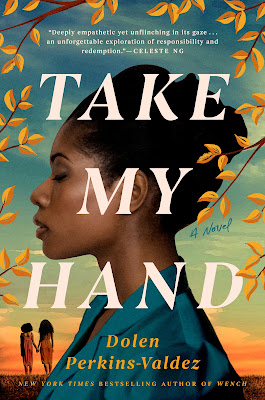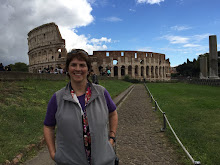I'm still trying to get over the fact that the decade I was a child (the 70's) is now historical fiction. Whoa. I'll say I don't remember all the turbulence of the 1970's; I remember Walter Cronkite on the news every evening, but otherwise I don't recall feeling stress or worry about the world at large. I was anxious about math at school and other things closer to home.
I was also completely unaware about the court case that this novel is based on. We don't learn everything about American History at school, and it's up to each of us to educate ourselves about the good and the ugly parts of our country. This was definitely ugly and shameful.
Civil Townsend is the daughter of a doctor and lives in Montgomery, Alabama in 1973. She's fresh out of college and under pressure to follow her father into medicine--but she doesn't feel the urge. She's taken a job as a nurse at the local federally funded clinic, and one of her first tasks is to travel to the homes of the poor and underserved black community and give the females a birth control shot. Civil feels she's doing exactly what she should be doing, until her first case with the Williams family.
Desperately poor and living in squalor, Erica and India are two young girls: thirteen and eleven. Civil gives them their shots, but is dismayed to find out neither girl has begun her period and definitely are not sleeping around. Civil begins to question why such young girls should be on birth control. Depo-Provera is being given to poor women all over Alabama and is lauded as a way to give women a choice in their childbearing years. At least that's what Civil is told. But she's shaken by the Williams sisters and begins visiting them more often to see if she can help them and their father and grandmother get out of the shack they live in and have a better life.
As Civil mulls over the Depo-Provera shot and its implications, she digs a bit deeper with the help of friends and discovers troubling news about the shot. Now she's in deep with her feelings for Erica and India, and is determined to put a stop to the clinic giving the shots to the poor black woman in Alabama.
This novel take a big, devastating turn, and it sets Civil and her friends on a course that takes them to the U.S. Senate and into a courtroom. It also forces Civil to confront her feelings on her secret abortion and feelings about motherhood.
Told from Civil's point of view, we see a young Civil in 1973, and a much older Civil in contemporary times, recently retired as an OB-GYN doctor living in Tennessee and raising her adopted daughter. Civil can't help but be haunted by her memories of the Williams' family, and decides to drive back home to Alabama to settle her memories and face the past.
If you're interested in the actual case, click here and read about the Relf Sisters and why this was a landmark case.
This was an eye-opening novel about consent and women's choice. The characters, especially the Williams family, all come to life and I was sad to see the end of the novel. I'd recommend this novel for a book club choice--sure to have discussions about a topic that remains a hot button in 2023.
Rating: 5/6 for a timely novel about female reproductive rights, consent, and every woman's struggle making choices about motherhood.
Available in hardcover, ebook( I read an ebook), and audio.



No comments :
Post a Comment